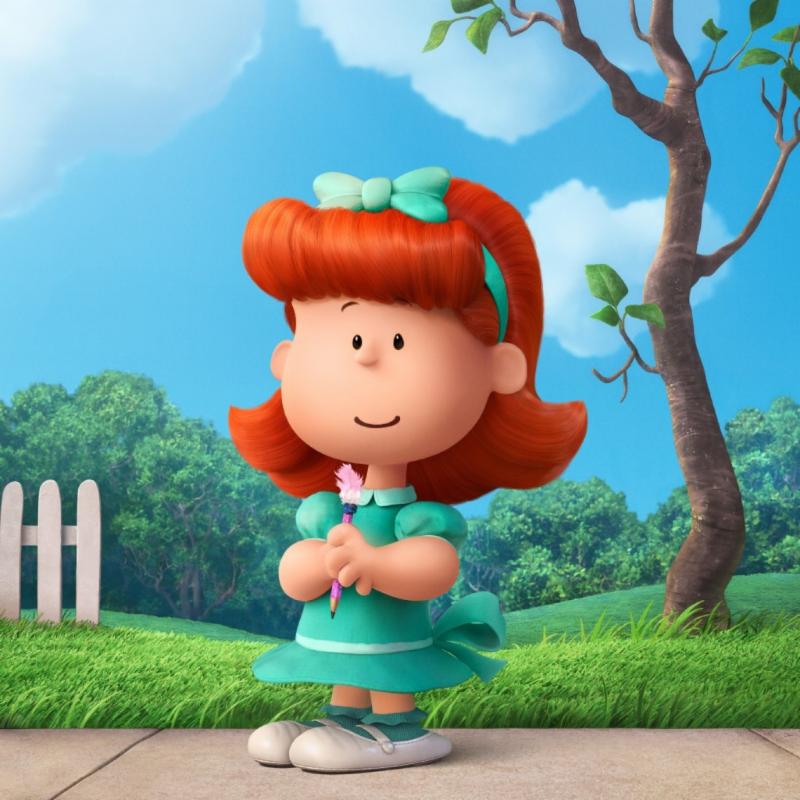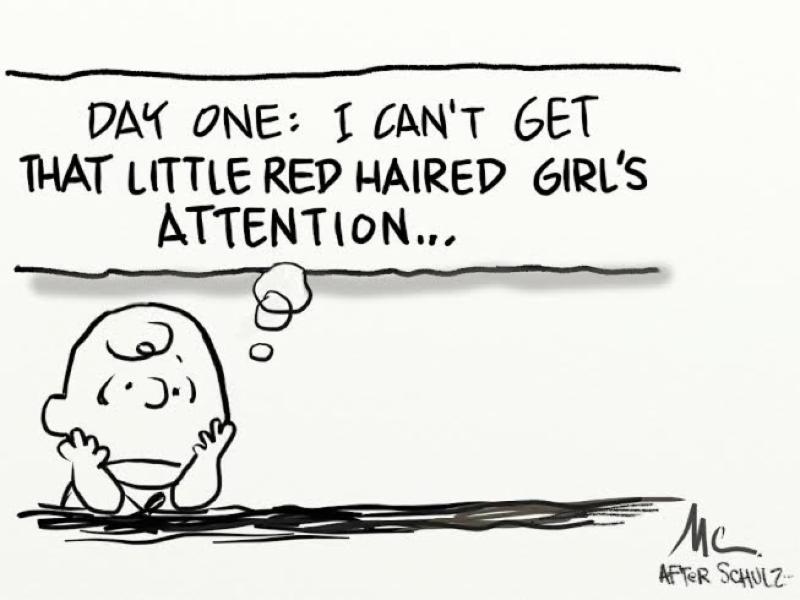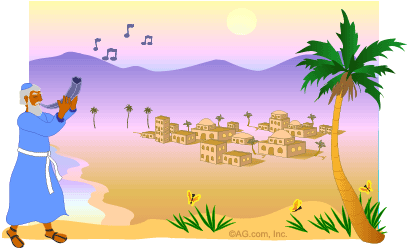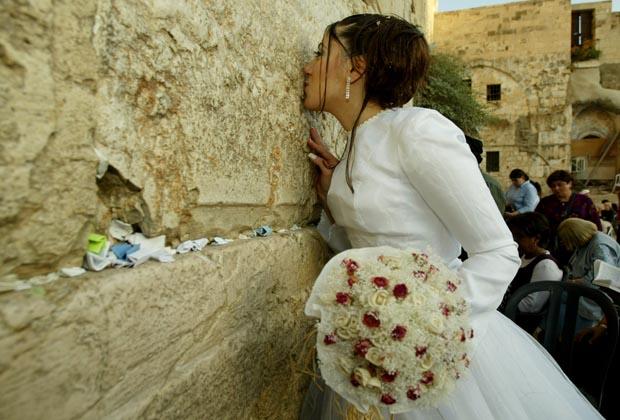











 Bnos Malka Academy – girls school located in Queens
Bnos Malka Academy – girls school located in Queens It’s a cute joke as a matter of fact, interestingly, the Gemara teaches us that women were born with a BINA YETERA-an extra intelligent sensory, where she can see what men can’t and man needs that. Rav Chaim Volozhin has a beautiful interpretation of the verse EZER K’NEGDO-man’s helper. An expression found pertaining to Eve, who helped man, her husband, Adam, to build the world. However, the literal meaning of K’NEGDO doesn’t mean “helper”, in fact quite the contrary; it could imply “against him”. Rav Chaim is emphatic in his interpretation. She should not be afraid to voice her opinion and on many occasions it very well can be the opposite opinion. A wife is not supposed to be a “yes lady”. Men are from Mars and women are from Venus and each come to the table with a different perspective of how to achieve the goals set out by the couple.
It’s a cute joke as a matter of fact, interestingly, the Gemara teaches us that women were born with a BINA YETERA-an extra intelligent sensory, where she can see what men can’t and man needs that. Rav Chaim Volozhin has a beautiful interpretation of the verse EZER K’NEGDO-man’s helper. An expression found pertaining to Eve, who helped man, her husband, Adam, to build the world. However, the literal meaning of K’NEGDO doesn’t mean “helper”, in fact quite the contrary; it could imply “against him”. Rav Chaim is emphatic in his interpretation. She should not be afraid to voice her opinion and on many occasions it very well can be the opposite opinion. A wife is not supposed to be a “yes lady”. Men are from Mars and women are from Venus and each come to the table with a different perspective of how to achieve the goals set out by the couple. We see G-d telling Avraham to listen to his wife Sarah and confront his other son, Yishmael asking him to leave the house because Sarah saw him as a bad influence on her son, Yitzchak. It seemed like Sarah had a greater vision of the situation at hand.
We see G-d telling Avraham to listen to his wife Sarah and confront his other son, Yishmael asking him to leave the house because Sarah saw him as a bad influence on her son, Yitzchak. It seemed like Sarah had a greater vision of the situation at hand. Dr. Goldman says women are more deeply inspired then men; they are unwilling to switch gears, while men did switch gears by fluctuating between believing in G-d one moment, and turning to Golden Calf the next.
Dr. Goldman says women are more deeply inspired then men; they are unwilling to switch gears, while men did switch gears by fluctuating between believing in G-d one moment, and turning to Golden Calf the next.
One can take this concept further; the whole physiological make up of a woman is based on renewal. Their monthly cycle is testimonial to this. At a certain time of the month they are able to mimic G-d and create. When opportunity is missed, the body rejuvenates itself and they try again. This power to create was not trusted upon men; it was the women that have the power physically and in all the other aspects that comes with it.
TODAY’S MODERN WOMAN 

For an akeret habayit, there is no contradiction between valuing her central position in the home and developing her interests outside of it. A traditional Jewish woman who works outside the home considers herself every bit an akeret habayit as a woman who stays home. There is no “housewife” versus “career woman” dichotomy… In “Eishet Chayil,” the prayer that is recited at theFriday night Shabbat table-the ideal woman is described as an expert businesswoman.
Over thousands of years, girls were educated at home, by their mothers. However, the western world proved to be difficult to maintain the spiritually enthusiastic Eshet chail. It wasn’t until Sarah Schenirer, who was a pioneer of Jewish education for girls. In 1917 establishing the Beis Yaakov school network in Poland. She saw girls being uneducated in basic Torah knowledge to an extent that they desecrated the Sabbath. Schenirer started to give classes in her workshop (she was a seamstress). The main goal of the schools was “to train Jewish daughters so that they will serve the Lord with all their might and with all their hearts; so that they will fulfill the commandments of the Torah with sincere enthusiasm”.
How important it is for a Jewish girl today to have a strong Torah education. If today’s women only knew the important role they have in maintaining the Jewish home, if they only knew their lone role to renew, to reinvigorate hope, they would approach life with a strong vigor. Rosh Chodesh is the Jewish woman’s holiday; it’s a time for her to celebrate the unique qualities she has, the unique qualities in maintaining the bait-house of G-d and raise banners by giving it over to the future generations by properly raising children in Torah environment who will continue the strong chain of our nation to continue to serve G-d and thus merit even more of G-d’s love and protection!
 First Portion
*BEWARE OF THE CYNICS! GOTTA STAY AWAY FROM THOSE PEOPLE!! We learn an important lesson in the first line of the parsha. It says (25:19)” Yitzchak was the son of Avraham”. Then it says “Avraham gave birth to Yitzchak”. G-d goes out of his way to confirm that Yitzchak was indeed the son of Avraham. People might think that he was the son of King Avimelech. For so many years Avraham and Sarah lived together and were not able to produce children. Apparently, right after the incident where Sarah was secluded for some time with the King, she became pregnant. But it was really Avraham who fathered Yitzchak. One of the biggest miracles that occurred when G-d granted Avraham and Sarah a child was that Yitzchak was a spitting image of Avraham, in order to shut down any minuscule possibility that Yitzchak was not his son. G-d went out of his way not to diminish the miracle. The importance of maintaining KIDDUSH HASHEM exalting G-d name and what Judaism stands for is of the utmost importance. Perhaps, we have to maintain the decorum required for that high slandered of spirituality. However one idiotic sarcastic comment by some clown can ruin and compromise the biggest miracle. Unfortunately we are susceptible to believing the cynics. This kind of stuff sticks. Therefore we have to do whatever we can to preserve our religion.
* The Sages say, Yitzchak and Rivka prayed to have children. However, it was Yitzchak’s prayers that G-d heard resulting in Rivka’s pregnancy. Rashi explains, the reason is that Yitzchak was a tzadik ben tzadik, righteous the son of righteous, while Rivka was tzadeket bat rasha, righteous the daughter of wicked. The Taz asks, wait just one minute fellow!! Haven’t we learned that if someone comes from a secular background and becomes observant, G-d listens to their prayers wholeheartedly, more so then one who has been religious all his life? Apparently, Yitzchak’s biggest virtue was the intensity of his prayer. For this reason Rivka, when she first laid her eyes on Yitzchak, (he was in the middle of prayer) she fell off her camel out of awe and fear. She had never experienced someone pray like that.
* From the first moment of contact with Yitzchak, the tone of the relationship was set. It was much different then the open heart dialogue relationship of his parents Avraham and Sarah. In fact when Rivka inquired why she was in such great pain, because of the pregnancy, she did not go to her husband. She went to an outside kabalist whose name was Malki Tzedek, even though her husband was considered just as holy. Malki Tzedek informed her there are two great nations in her stomach. She never informed her husband of her consulting with the great Rabbi nor did she inform Yitzchak of what he said.
* Since Rivka complained of her pain from her pregnancy, she did not merit to be the mother of the twelve tribes in which she was destined to have.
*Yaakov and Eisav are the definition of good and evil. According to the Zohar, they were both born in order to bring the world to the level of the messianic time. Yaakov was to take the good in this world and elevate it to the highest level. Eisav was an ISH TZAYID, a hunter, who used trickery, to capture its prey. He was to influence people through being a fine actor and capture their heart back to G-d. But Eisav did not reach the standard that was set up for him, so Yaakov was assigned both tasks.
Second Portion
*There was a famine in the land resulting in Yitzchak and Rivka moving to Grar, the land of the Pilishtim. Yitzchak actually wanted to go down to Egypt, however G-d refused saying: “you will not leave the land of Israel”.
* It seems like our forefathers had great taste in picking good wives because this is the third time the narratives tells us that our fathers and mothers traveled out because of the famine and our mothers were forced to see the king. They were saved by G-d, unharmed. Personally I have this lingering question for years on the three peat of the similar occurrence. An email response with an answer would be greatly appreciated.
Third Portion & Fourth Portion
* The Pelishtim wanted to kill Yitzchak because he was penniless and poor when he arrived to their land. Then after he became financially successful, they still wanted to kill him. Many commentaries say this was an indication of anti-Semitism. When King Avimelech comes to him and asks that they sign a new treaty, or to re-affirm the one made with his father Avraham, Yitzchak rebukes him and says “You hate me why do you come to me? Avimelech response is one that we have heard through the course of history: “We have done you nothing but good, and we sent you away in peace”. He wants Yitzchak to appreciate the fact that he was not sent to a concentration camp, but was allowed to leave the country after his wells and his land was confiscated (Nachshoni).
Fifth Portion
* The fact that Avimelech came to Yitzchak after all he had done to him and requested a treaty, is somewhat surprising According to the Ramban, his conscience bothered him because he had violated the treaty he made with Avraham and he was afraid Yitzchak’s descendants will expel his descendants in the future.
* We see another incident where there is a difference between husband and wife. Rivka secretly intervenes in giving the bracha to the Yaakov, who was deserving of it.
* We see that in order for a blessing to take place, the person giving the bracha has to be satisfied both emotionally and physically. Yitzchak asks Eisav, “hunt and prepare me a meal that I like, then I will bless you. Then and only then will the bracha take effect.
* Eisav was delayed in capturing an animal for his father because he did not go with his coat. He has this coat from wining a battle against Nimrod. This was Adam’s coat (first man). It had a special devise were animals would gravitate to and then they would be easy prey. Rivka gave this coat to Yaakov to wear so that Yitzchak would not know the difference.
* HAKOL KOL YAACOV the voice sounds like Yaakov. Many commentaries say that a Jew’s power is in his mouth, while the gentile nation have physical power. Perhaps this is the reason Jewish accountants and lawyers are not known for their physical beauty.
* When Yitzchak smelled Yaakov, Rashi comments that he smelled an apple tree from Gan Eden and he Knew he’s giving the bracha to the right son. This kindness that G-d did with Yaakov is reiterated on Rosh Hashana by dipping Apples in honey.
Sixth Portion
* As long as Yaakov’s descendants follow the ways of G-d they will prevail over Eisav descendants. However if they do not follow in that path then Eisav will prevail and inflict pain onto Yaakov.
*”Yitzchak trembled” when he realized that he could have given the bracha to the wrong son. Another opinion says that after Yaakov leaves, Eisav comes in and lets out a shout, letting Yitzchak realize that he really gave the bracha to Yaakov. He realizes that Hashem has a master plan and that it was done for the best. “Yitzchak trembles” because of the thought that he might have accidentally ruined that plan by giving the bracha to Eisav. That is why Yitzchak says shortly after that Yaakov should keep the bracha and be blessed.
Seventh Portion
*The stage is set for Yaakov to find a wife.
|
 The great Avraham, our forefather, was extremely charismatic and one whose kindness to others was widely known. He was labeled G-d’s servant. He had a son, Yitzchak, who, like his father, had a very hard time having kids. The Torah describes Yitzchak praying in one corner and his wife Rivka praying in the other corner. We read in the Torah “G-d answered him”. Rashi, who is one of the main commentaries on the Torah, asks why was Yitzchak’s prayers answered over Rivka’s? He answers, Yitzchak is a tzadik the son of a tzadik while Rivka is a tzadaket the daughter of a rasha. The great Avraham, our forefather, was extremely charismatic and one whose kindness to others was widely known. He was labeled G-d’s servant. He had a son, Yitzchak, who, like his father, had a very hard time having kids. The Torah describes Yitzchak praying in one corner and his wife Rivka praying in the other corner. We read in the Torah “G-d answered him”. Rashi, who is one of the main commentaries on the Torah, asks why was Yitzchak’s prayers answered over Rivka’s? He answers, Yitzchak is a tzadik the son of a tzadik while Rivka is a tzadaket the daughter of a rasha.
The Taz, who was one of the leading lawmakers, concludes from the above passage that if there are two people who want to go up to the bima to be a chazzan, (one who leads the prayer), one comes from a good family background, while the other fellow comes from a not-so-good family background. Even though they are both shomer mitzvot, religious (Shabbat observant), equal in good character, nevertheless because the father of one of them is non-observant, the tzadik ben tzadik is picked. This is the understanding we derive from Rashi. “However”, the Taz continues “I don’t hold that way. We know, it’s common knowledge.” A person who is a Ba’al Teshuva – a person who becomes observant (keeping Shabbat, Kosher, etc.) is on a higher level than the FFB – frum (religious) from birth. The reason is because it’s harder for him to keep Shabbat and not turn on the lights or turn on the TV and watch a ballgame because he’s accustomed to it. It’s probably difficult to give up the non-kosher food, as well. To break away from those pleasures takes a lot of courage. G-d is well aware of the challenges the BT has and is overcoming . He therefore, puts him and his prayers above the rest. For a FFB, to turn on the TV on Shabbat is not even on the radar gun. He was trained since childhood not to turn on the lights on Shabbat.
This argument is divided among the Sages throughout the generations.
Let’s examine briefly the power of prayer:
There was a study taken and published in the New York Times a number of years ago, that people who pray regularly are less likely to get depressed. They are more motivated to do everyday life activities; they’re psychologically uplifted. So it seems like prayer is a tool to increase energy. Does prayer really work? Can it change destiny?
We see from the most important part of our history that prayer had an enormous impact. We were slaves in Egypt and destined to be there for four hundred years. “G-d heard their moaning.” As a result of hearing their prayer, their anguish, G-d let them out after only 210 years.
What happens when one prays for a sick person and he dies?
The hardest thing for a human to realize is that the last word is G-d’s. It’s His world, not ours.
The Chovot Halevavot says the very act of prayer elevates and transforms us where we are no longer the same individual we were before. So if there is a heavenly decree against a person, it could very well be annulled through prayer. Since he has been transformed through prayer, he is no longer the same person against whom the original decree has been issued. This is what Moshe tried to do in this week’s Parsha; however again, the last word is G-d’s.
Rabbi Bunim was once asked, how can a person who does not wear Tefillin, desecrates the Shabbat, and eats non-kosher, be wealthy, and generally successful? He answered, this is the curse of the snake who is cursed more than all the cattle and beast. “On your stomach, you shall go and eat dust all the days of your life.” We know dust is not tasty, but plentiful; it’s always accessible. Seemingly, G-d blessed the snake and did not curse him. However, a human has to work by the sweat of his brow and have childbirth pains; now that’s punishment.
The predicament means it forces him to pray, bond, and get close to G-d. In fact, it’s a big sin when man is in a crisis and doesn’t pray to his maker. The snake, who is provided all its necessities, has no connection with G-d and does not need to communicate. This is the biggest curse anyone can receive.
After agreeing to marry Yitzchak, and as she was being escorted to the house of Avraham, the scripture says “She saw Yitzchak for the very first time and she fell off the camel.” Rashi commented he was praying Mincha. R’ Eli Mansour quotes the Netziv of Veloshin who says, “She was awed at the intensity of him praying.” From that moment on, she developed a fear of her husband, Yitzchak, that remained for the rest of her life. A fear that stemmed from the intensity of prayer; that through this prayer they got their children, Yaacov and Eisav.
So perhaps, it’s not the background of a person – but the individual – who can make a difference. |